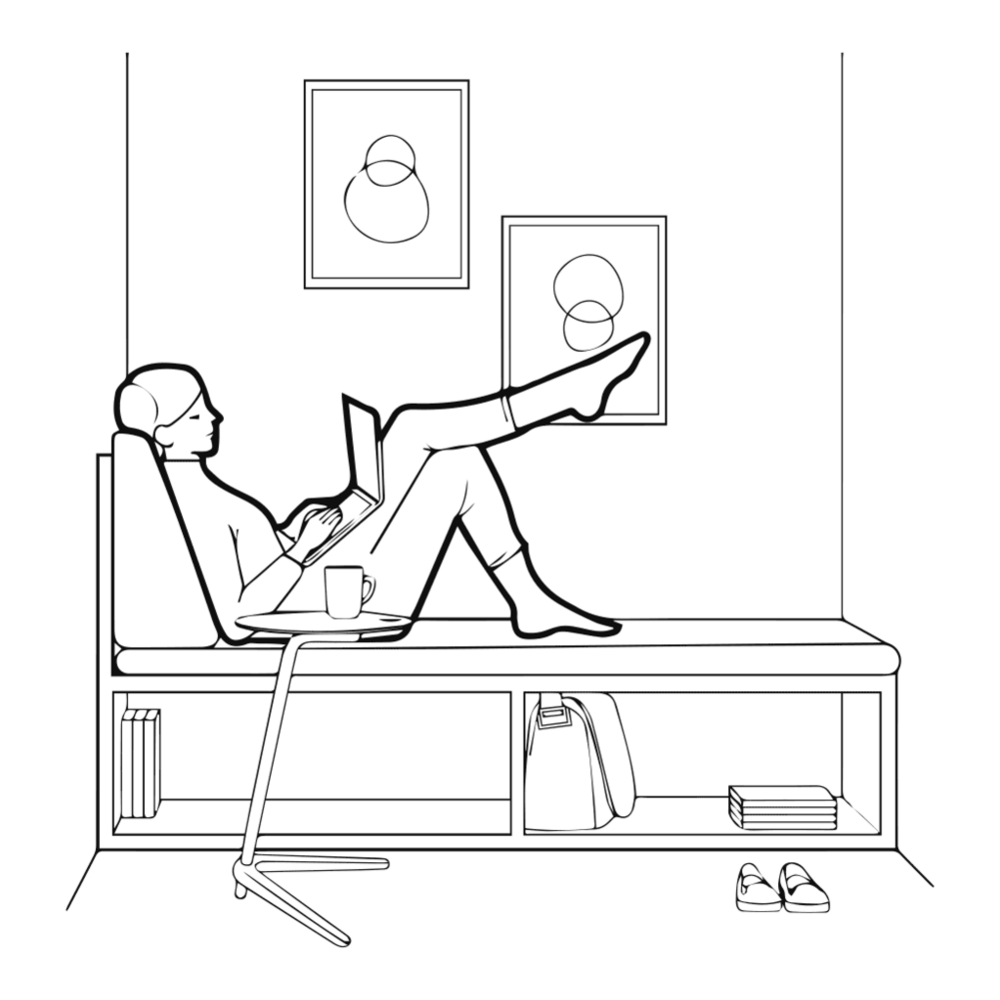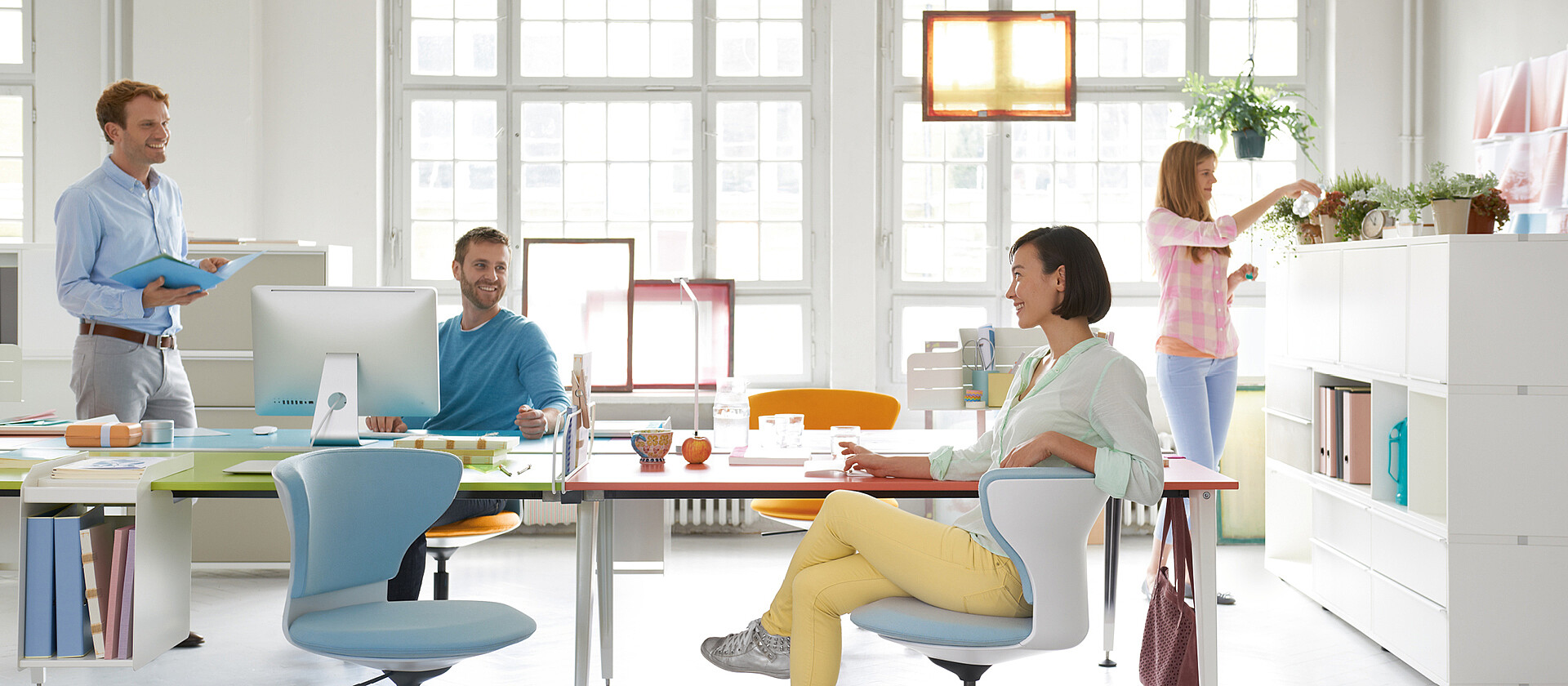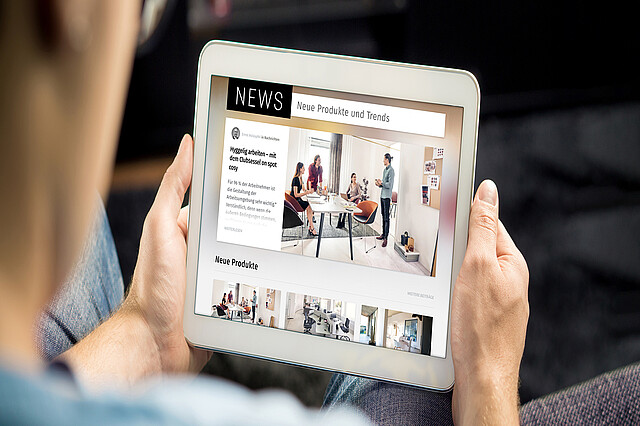Different tasks require different conditions – some activities require peace and concentration, others require close interaction with colleagues. An environment that takes these requirements into account helps tremendously to work in the best way possible. Depending on the required work situation – concentration, communication, collaboration or contemplation – the work settings are designed to meet these needs. The crucial advantages of this office design are obvious: It supports precisely those working styles that are important for the productivity and well-being of employees.
Sedus Solutions: solutions for diverse working styles
The task determines the work situation
In the modern working world, tasks are flexible, thus requiring different working environments. Therefore, employees decide for themselves where and how they can best perform their tasks, alternating between different work situations. Concentrated individual work can be followed by a communicative session, teamwork can be switched with retreat or contemplation. Modern office planning takes these needs into account and creates the necessary solutions.
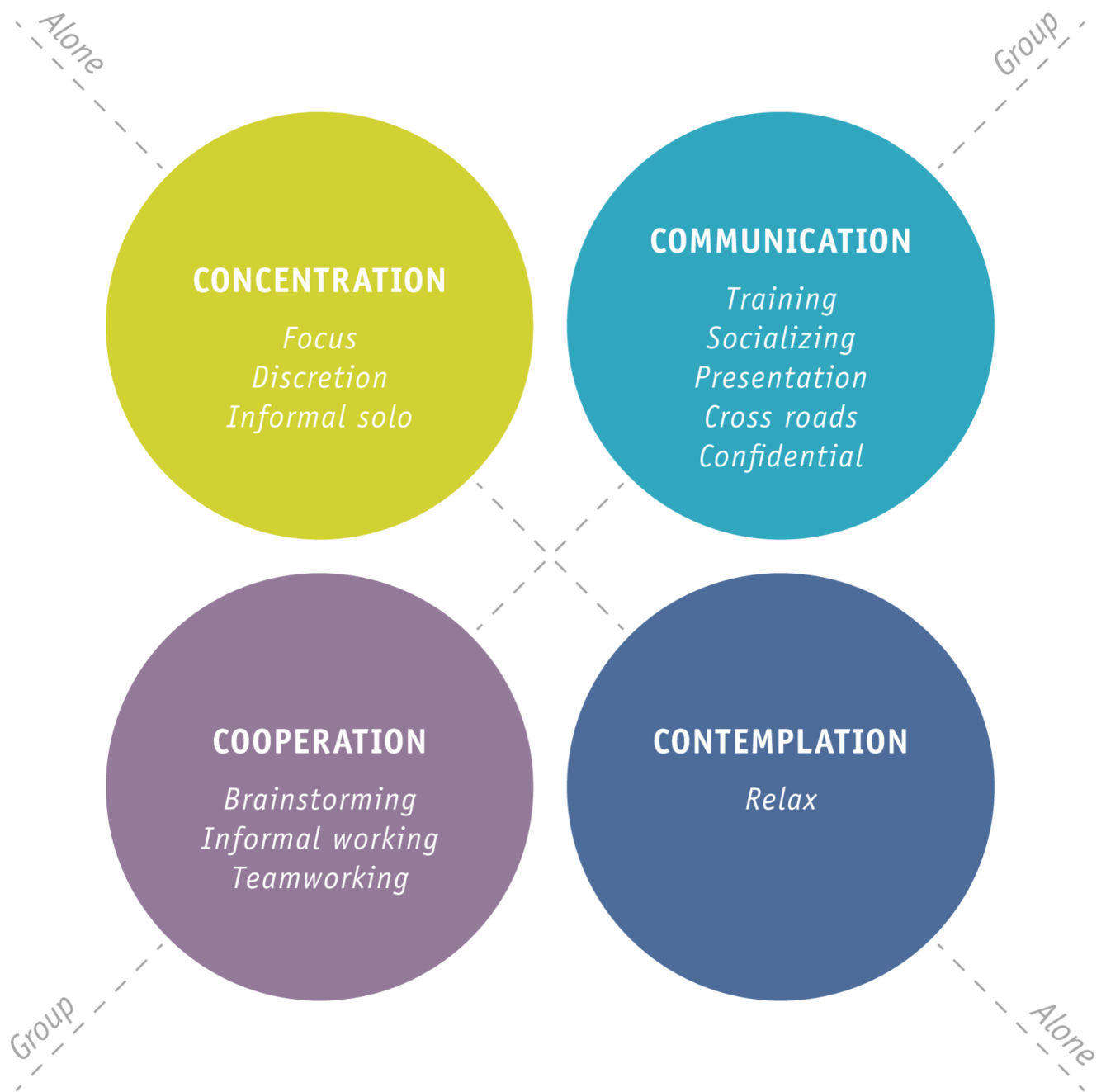
The 4C principle is based on four different work situations: Concentration, communication, collaboration and contemplation. These, in turn, place very specific demands on the working environments and on the furniture. Tailored to the needs of the employees, it is possible to minimise errors and, therefore, achieve better results.
Discretion
Occasionally employees need a moment that requires the utmost discretion. The traditional "telephone box" situation associated with this, is unpopular, as it conveys the impression that the employee is dealing with private matters during working hours, while the closeness of the space does not permit any work that requires a high level of concentration.
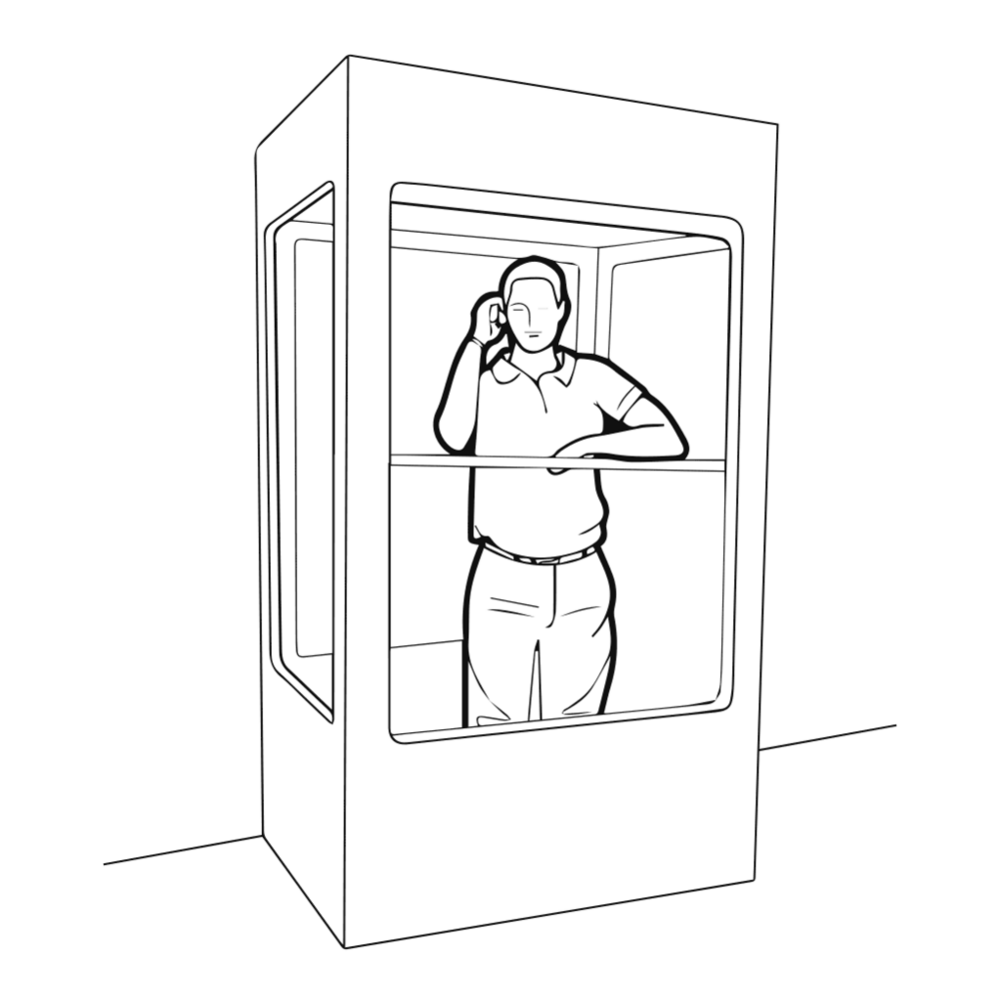
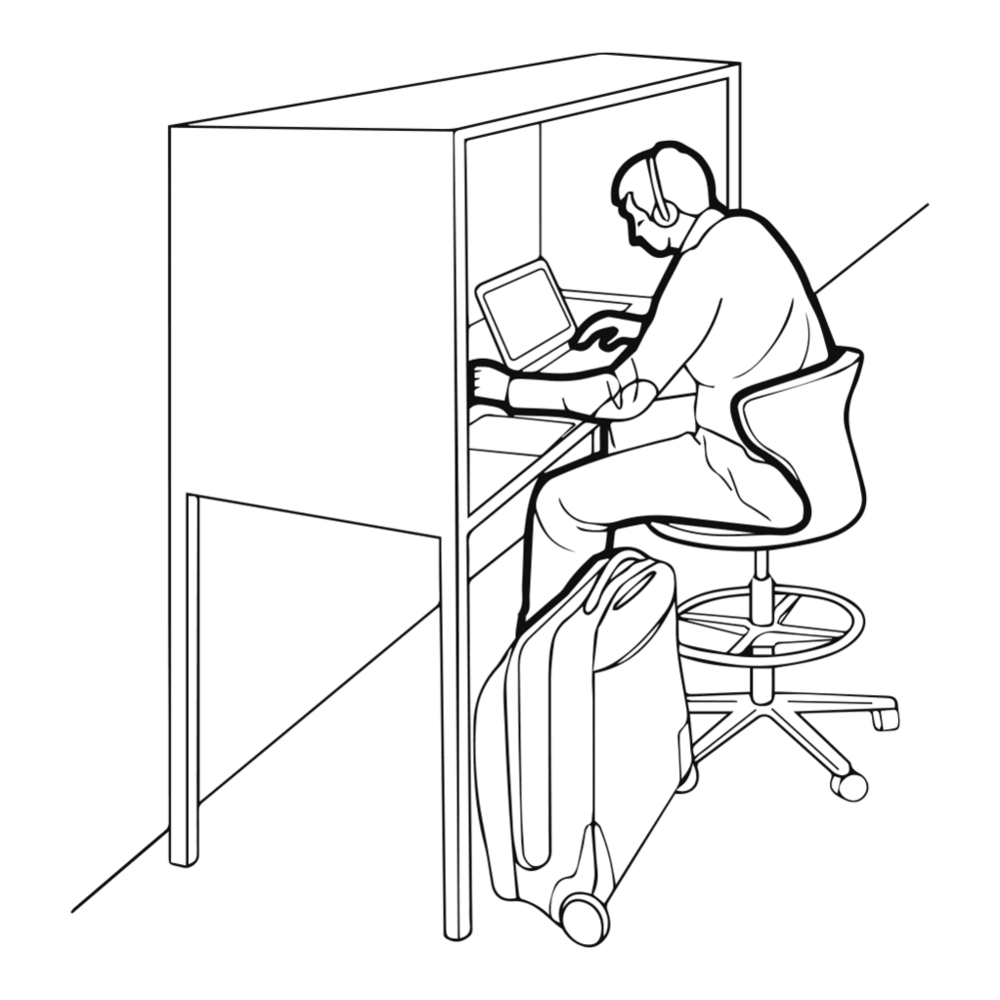
Focus
Even companies, in which team work plays a major role, require rooms in which their employees can concentrate on specific tasks. Employees spend half of their working hours in this way. The study shows that concentration is enabled by creating the right "distance" between the employee in question and his/her colleagues.
Informal solo
This refers to moments where employees leave their desks but continue to work in a more informal manner, similar to the state of "Concentration". However, "separation from others" is less pronounced, as there is still an option to interact with colleagues working in the same room.
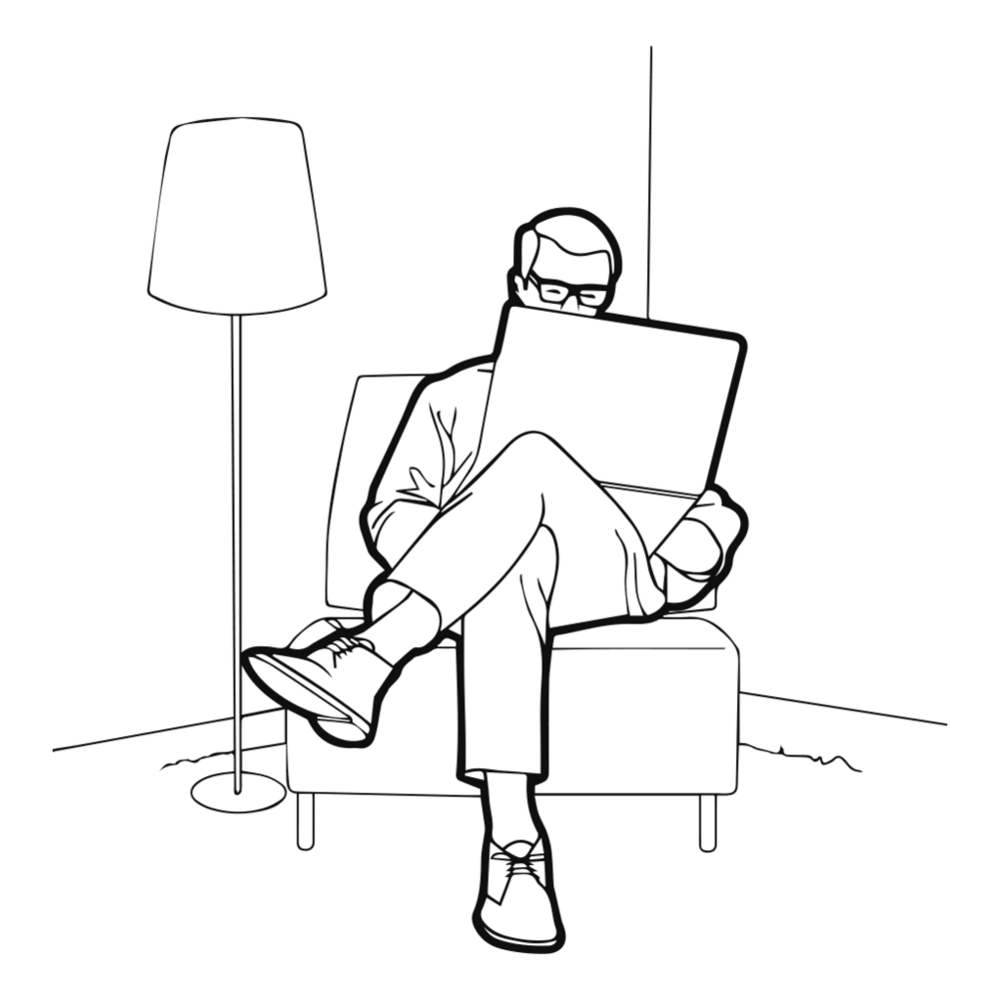
Confidential
This corresponds to the "Discretion" style of work, only with two or three people. The confidential form of work encompasses all situations in which a few members of staff require some privacy to discuss sensitive issues. Generally these are work-related issues and not private issues. Employees therefore willingly make use of "cabins" specifically provided for this purpose.
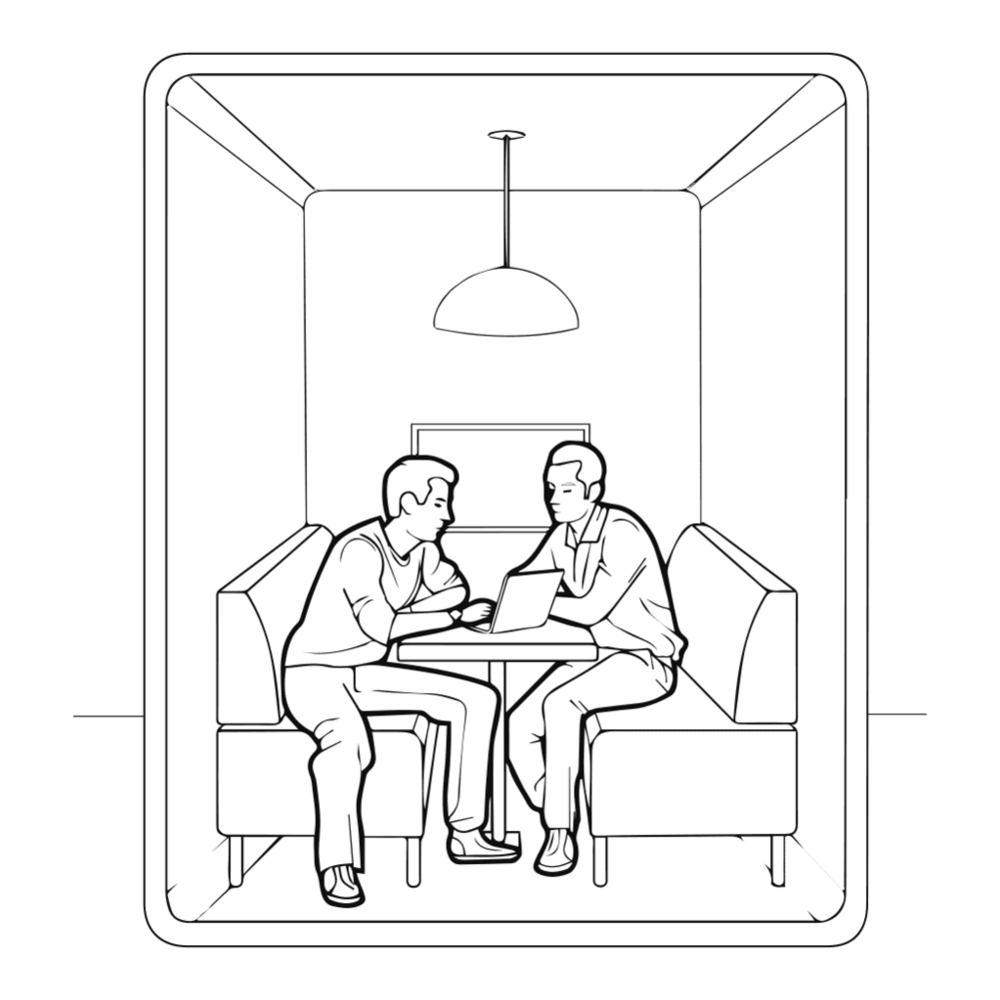
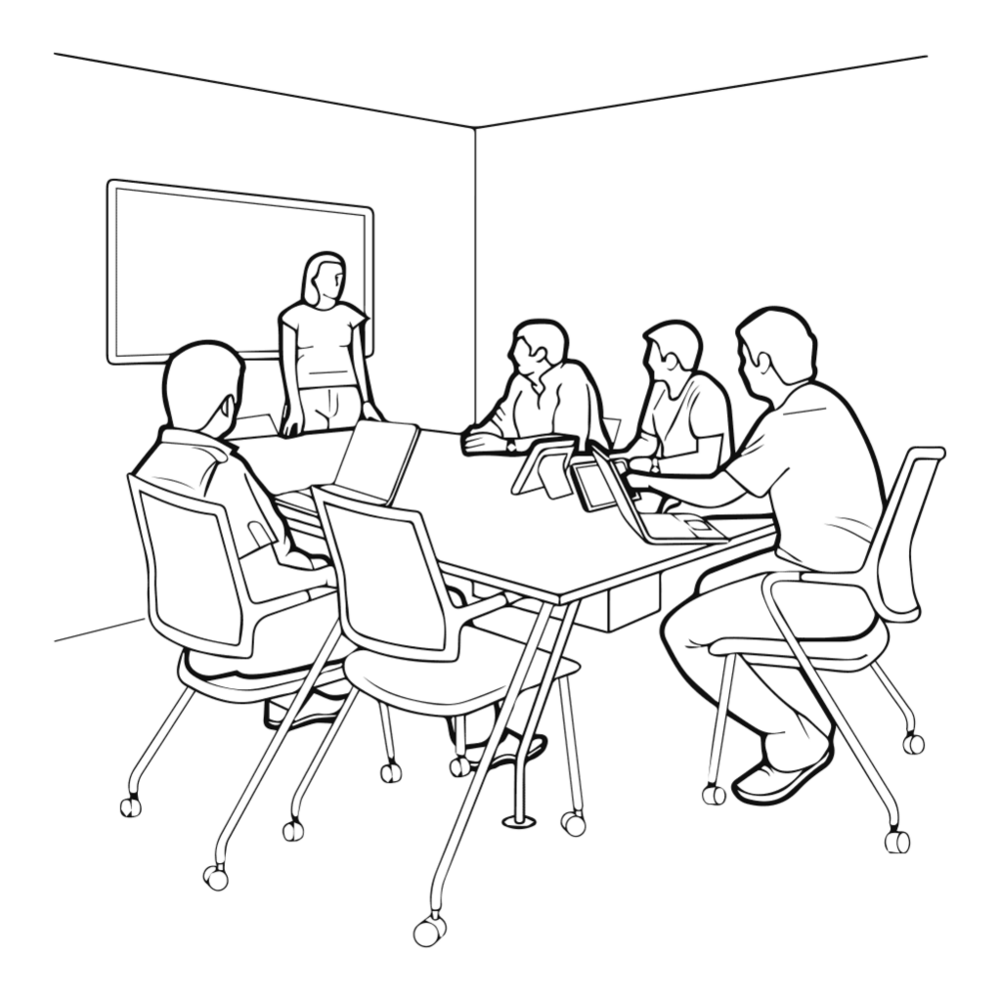
Presentation
This form of work includes all meetings held for the purpose of communicating information by "presentations". The study shows that many different types of rooms can be used for this as well as traditional meeting rooms.
Training
"Training" refers to all situations in which there is a formal exchange of knowledge. Although training rooms require specific instruments and equipment, the study shows that traditional teaching from the front is still used, even in cutting-edge offices.
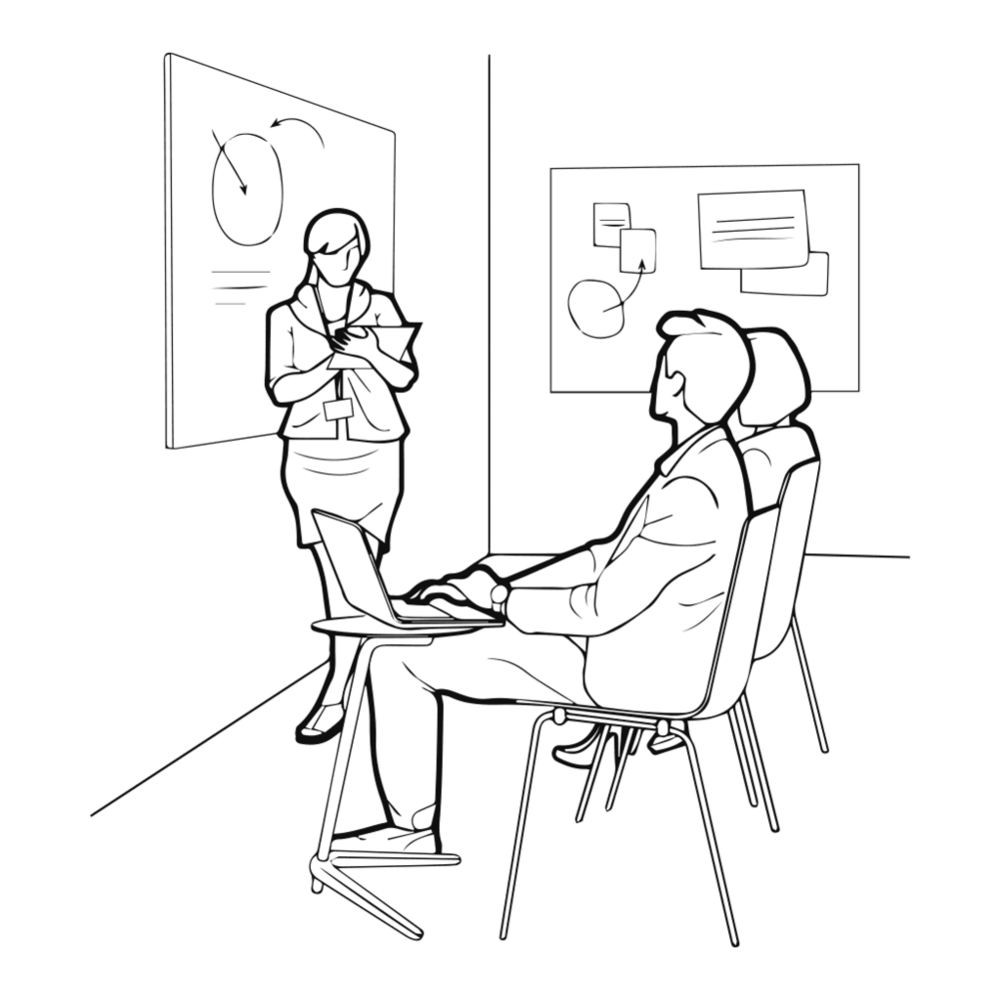
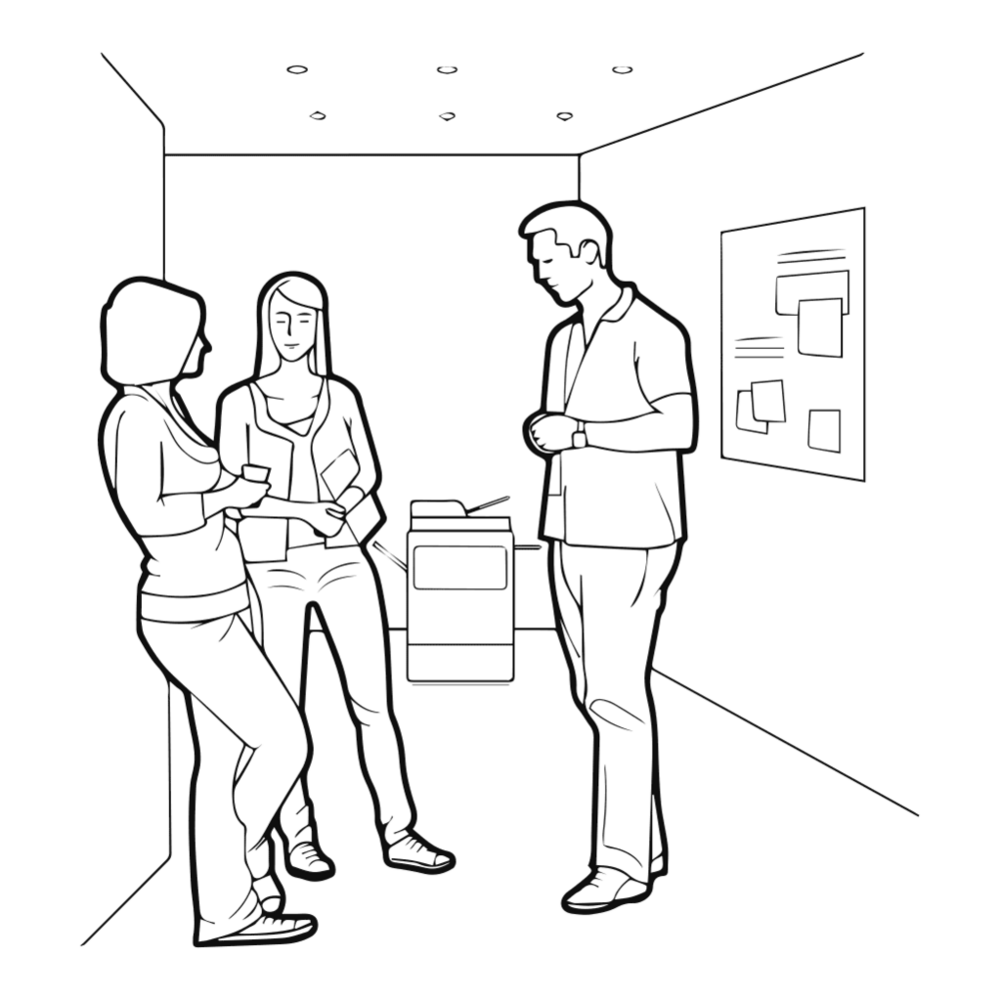
Cross roads
There are areas in offices that promote spontaneous communication between members of staff. These areas are often characterised by the existence of a particular "attractor", like a coffee machine, a photocopier or similar "equipment". These spaces are often designated as "cross roads". due to the function that they provide: employees go there for a specific reason and then spend longer there due to "unanticipated" discussions that often concern work-related matters.
Socialising
Employees look for opportunities to meet up, reinforce the group feel and share information in an informal and unscheduled manner. Canteens and relaxation rooms are the meeting points where all this is done. In many cases food and drink is provided while a "touch of nature" in the room ensures that members of staff feel even more at ease.
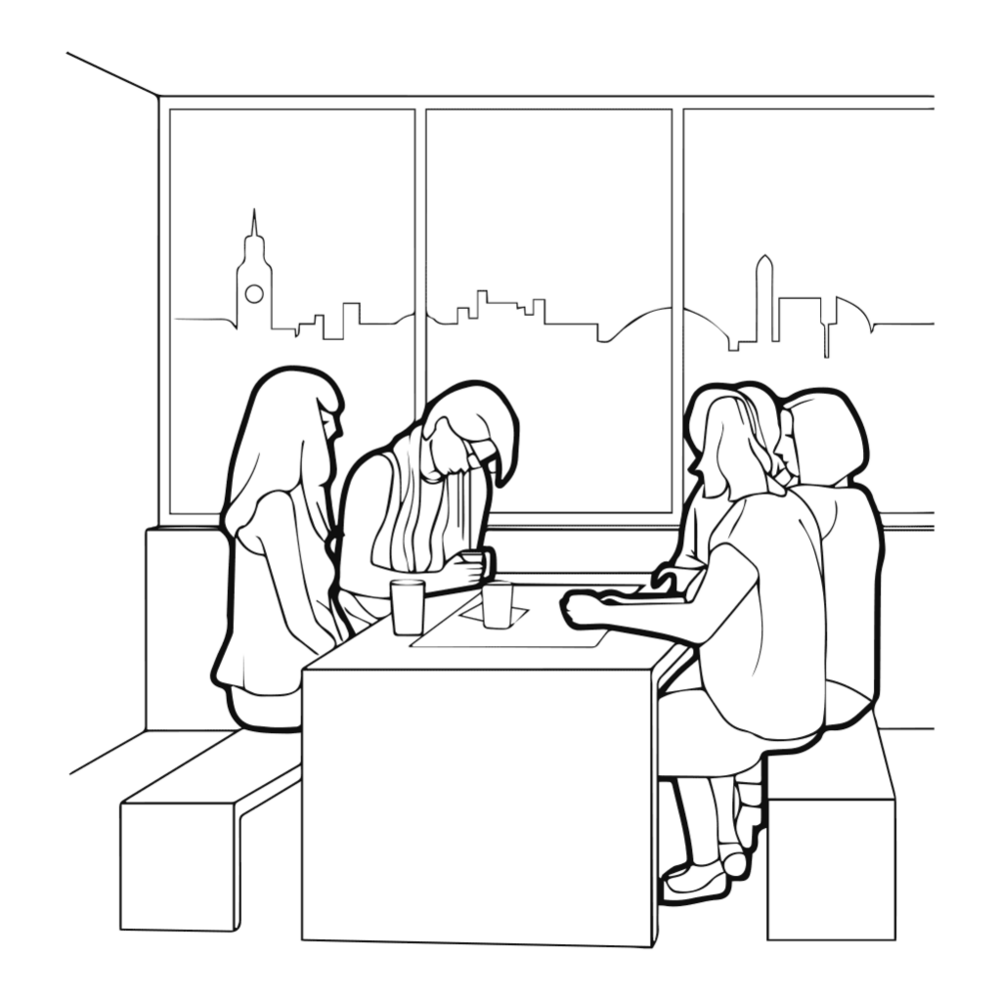
Brainstorming
Many companies have specific rooms in which members of staff can unleash their creativity more easily, enabling them to innovate and work more efficiently on projects. "Brainstorming", as a style of work, includes all temporary approaches to work and requires the provision of a physical space, coupled with equipment and furniture.
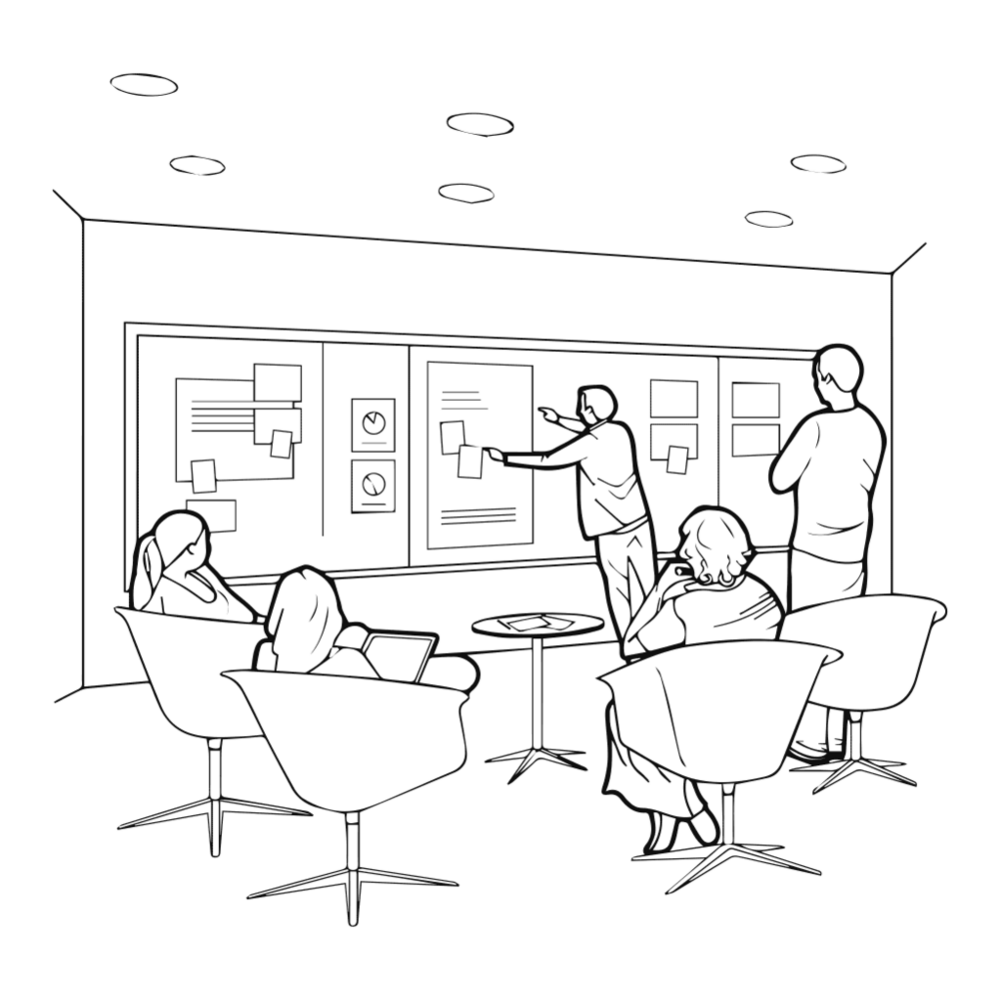
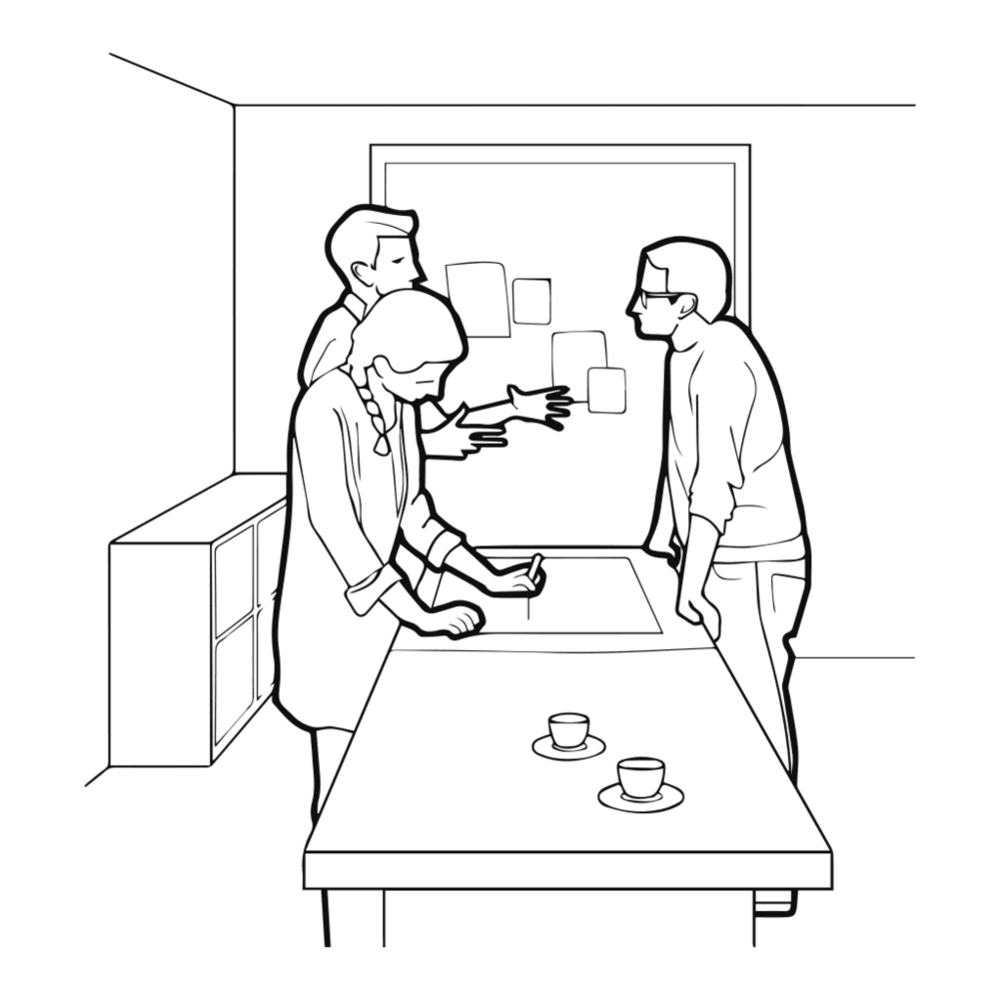
Informal working
This refers to moments where employees leave their desks but continue to work in a more informal manner, similar to the state of "Concentration". However, "separation from others" is less pronounced, as there is still an option to interact with colleagues working in the same room.
Teamworking
In the past, team work only happened around desks or meeting tables, whereas now it is increasingly handled in a more flexible manner. A whole series of rooms would be suitable for this form of work. If a project team is only temporary or works as a stand-alone unit, the framework for this style of work needs to include premises, which simplify team work at the same time as offering the individual team members an opportunity to complete certain tasks alone.
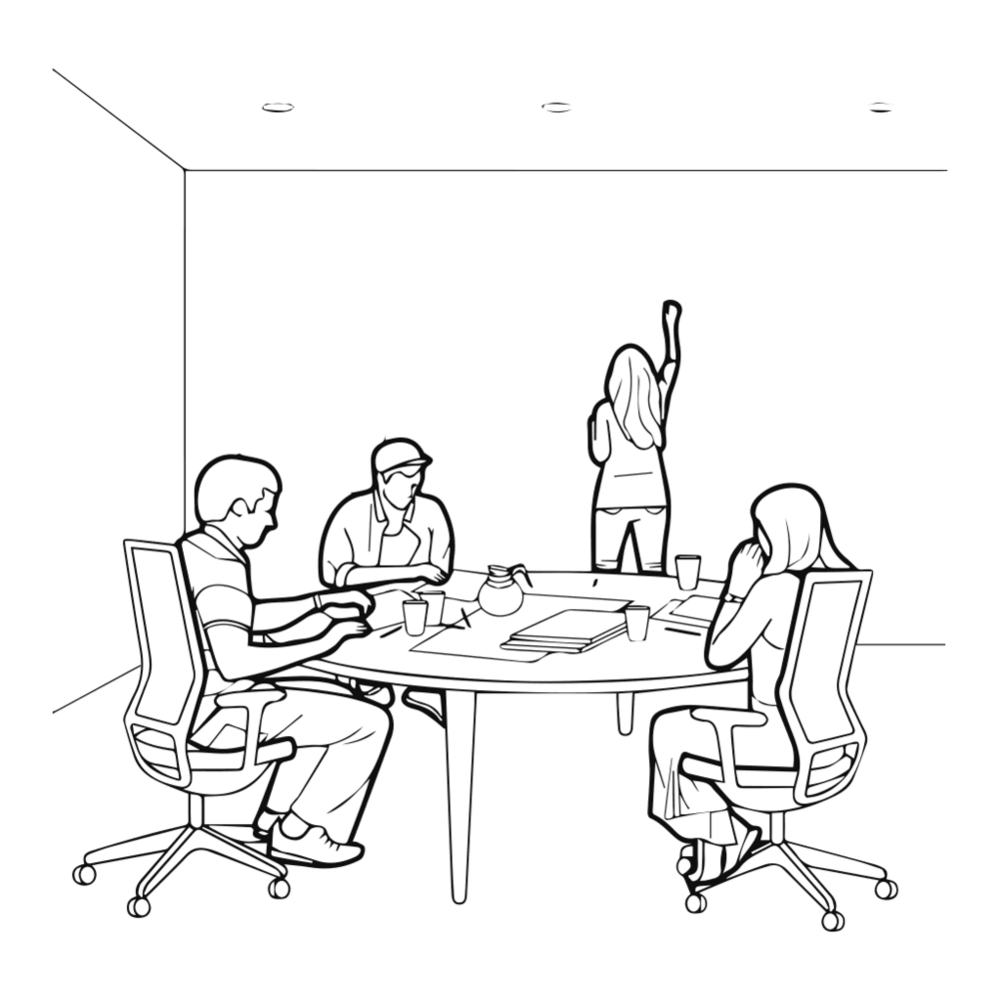
Relax
As our style of work and lifestyle are increasingly merging, there is a need for places where employees can relax. These areas enable employees to interrupt their work for a while, returning to it later, relaxed and refreshed. The clusters mentioned in this study are rooms, which are used for relaxation, designed exclusively for individuals (relaxation rooms for groups fall into the "Maintaining contacts" category).
